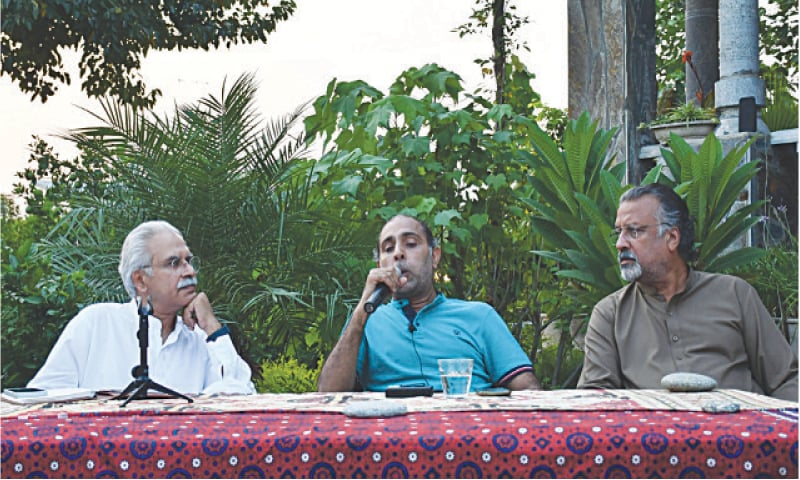HARIPUR,Pakistan(Monitoring Desk): Distinguished educator, Syed Zahid Kazmi, has made a noteworthy assertion, proclaiming that he possesses the most extensive assortment of Urdu autobiographies in the entire South Asian region.
Kazmi, who has also founded a school for the education of underprivileged children, has affirmed that a staggering 95 percent of the books within his possession originate from publications in the region dating back to 1876. These remarkable revelations were disclosed during his address at the Taxila Chaupal, a monthly congregation of intellectual luminaries hailing from diverse walks of life. The gathering took place at the Gandhara Resource Centre in the Khanpur tehsil.
Overseeing the session was Dr. Zafar Mirza, the former health advisor to a previous prime minister and renowned for his Urdu rendition of “The 7 Habits of Highly Effective People.” The event attracted a distinguished audience comprising intellectuals, development strategists, health and agriculture experts, archaeologists, researchers, poets, and writers.
Kazmi fervently shared his lifelong passion for literature and the formidable challenges he encountered in amassing approximately 30,000 books spanning various genres. He recounted the initial struggles to persuade celebrated authors, poets, autobiographers, and journalists to contribute their literary treasures to his burgeoning library. His unwavering commitment to safeguarding and disseminating these literary marvels compelled him to initiate the construction of a state-of-the-art library in his hometown of Haripur.
In acknowledgment of his deep-rooted fondness for autobiographical literature, Kazmi graciously extended gratitude to influential figures, including Dr. Pervez Parwazi, Munu Bhai, Prof. Dr. Zahoor Ahmad Awan, Akhtar Hameed, and others, who significantly enriched his collection. He also disclosed his involvement in publishing endeavors under the banner of the “Sungi Publishing House,” having already published 20 books, with 15 more currently in the process of recording and editing.
Among the illustrious authors featured in his upcoming releases are Syed Kamal Azfar, Dr. Ishrat Husain (former governor of the State Bank), and Dr. Zafar Mirza.
When prompted to address the decline in the reading culture, Kazmi accentuated that his publishing house’s approach, designed to facilitate authors and individuals with extraordinary life experiences, was successfully rekindling interest in reading. He acknowledged the significance of adapting to evolving technologies and promoting electronic versions of books to engage today’s youth, who grapple with an array of distractions.
Notably, Kazmi revealed that he had generously lent his books to countless PhD scholars without any financial remuneration, thereby contributing to their academic pursuits.
Furthermore, he expounded on his project “Babul Ilm School,” initiated in 2016, which provides educational opportunities to 200 students hailing from his native village of Bareela. These students pay a nominal monthly fee of Re1 and are also provided with complimentary uniforms, books, and transportation, although meals are not included due to financial constraints. Kazmi clarified that the minimal fee was established to uphold the students’ dignity and take into account the economic circumstances of their families. He expressed gratitude for the financial support extended by his friends to sustain the school’s operations.
